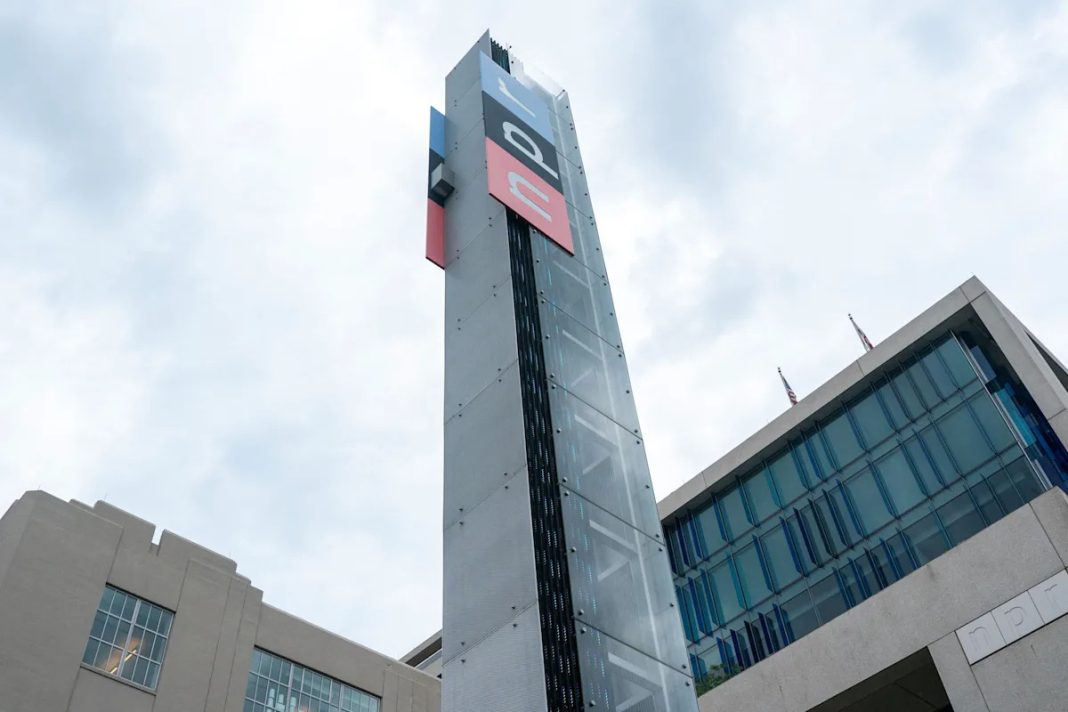The News
NPR and its member stations are experiencing a spike in large- and small-dollar donor giving following Republicans’ decision to claw back federal funds. But NPR’s CEO cautioned that this outpouring of listener support is not a permanent solution to the radio network’s funding shortfall.
“It’s really important that the funds be understood as something that is a one-time response,” Katherine Maher told Semafor. “It’s up to all of us to continue to build those relationships with people who have demonstrated newly that they’re committed to public media, but recognize that we have a long way to go in terms of achieving sustainability.”
Last week, a number of prominent NPR stations hit fundraising milestones. The New York Times reported that a donation drive by WUNC in North Carolina raised more than $1 million, while WMNF in Tampa, Fla., raised more than $280,250.
Maher said that NPR was offering $8 million in immediate fee relief for stations strongly impacted by the funding clawback. It’s also working to help put together a bridge fund that would be “probably outside of NPR,” and would be focused on getting shared resources and services on the back end to help stations cut costs.
“The reality is that, just like the impacts are pretty disparate, the stations that are best positioned to receive that kind of fund and engage in that kind of fundraising are not the ones that are most at risk,” Maher said. Those vulnerable affiliates are “often serving communities that just don’t have that kind of disposable income to be able to support their stations overall.”
NPR higher-ups have also been attempting to solicit donations from major institutions in order to quickly make up some of the gaps from federal funding cuts and (likely) licensing fee shortages. Maher was in San Francisco this week as part of a fundraising effort; she gave remarks to NPR staff from the Menlo Park offices of the Hewlett Foundation, which gave a two-year, $1.2 million grant to NPR in 2024. One person familiar told Semafor that Maher was set to sit down with a billionaire donor on Thursday.
Maher said that while she did not want to share specifics, NPR has heard from major donors and philanthropic institutions that have not historically backed media organizations but who have strong local focuses and “recognize that public media funding is a critical piece of how their portfolio interests continue to get covered.”
Still, she said, NPR and the Corporation for Public Broadcasting do not consider funding to be eliminated forever, and are going to continue their lobbying efforts.
Maher said she felt disappointed, but not betrayed, by lawmakers who voted to rescind funding for NPR. She noted that the organization is already talking to lawmakers about the 2026 budget and the places where NPR and its member stations continue to be vital.
“I feel as though we, public media, put up an extraordinary demonstration of its value. These votes were tough, and they had to be broken by the vice president in terms of ties at times. And I think that this was a moment and opportunity for lawmakers to hear about how important this is.”
Max’s view
The clawback of federal funding is a crisis for NPR that was decades in the making, but still came as a shock to many congressional watchers. Last year, when I first floated that NPR and the Corporation for Public Broadcasting could find themselves in the crosshairs of more determined Republican opposition, many people I talked to brushed off those concerns, noting the many times the organizations had batted away wannabe defunders and the slim Republican majorities in the House and Senate.
But media fragmentation helped. In previous eras, rural GOP lawmakers and conservative families who turned on and for their kids were enough to scare Republicans into approving funding. But with the migration of audiences to podcasts and children’s YouTube shows, congressional Republicans simply do not believe they will suffer any political consequences of cutting off funding for NPR.
While some of the weaker member stations may struggle or shutter entirely, this is not the end of NPR, and it may represent a turning point. Maher told Semafor that in conversations with different philanthropic organizations, she has discussed how NPR is using the funding shortfall as an opportunity to rethink how public radio and public media are funded, and how the member stations and “mothership” work together.

